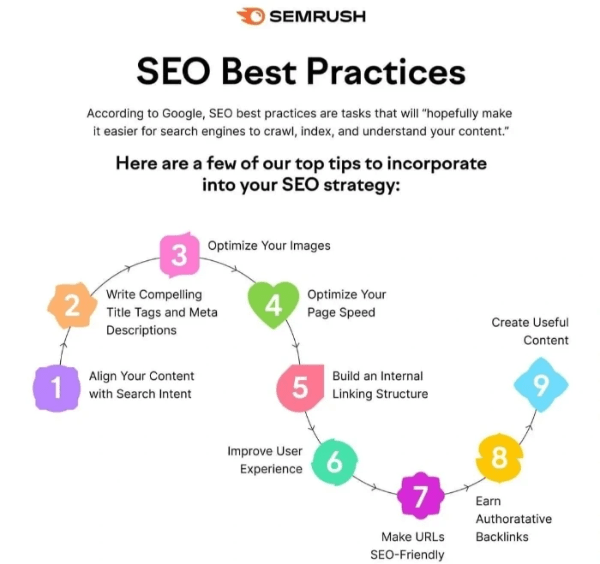A website without a keyword strategy is like a karaoke machine without a microphone – you have the right idea (karaoke is always the right idea) but you are missing out on all the fun!
This article will guide you through using keywords to amplify and elevate your website so you can reach a wider audience.
Keywords are the ideas that drive your website. They are the backbone of your content strategy. If you distill any page on your site into a few simple phrases, those would be your keywords. Now do those phrases match what people are searching for when they need the product, services or information you offer? They are looking for solutions and you want to make sure that they find yours.
How you reframe your website to make sure that the keywords people are searching for align with the content you provide in a way that’s genuinely useful to the user - that’s your keyword strategy.
A strong keyword strategy will turn your content into pathways that lead Google queries directly to your website.
What are SEO keywords?
SEO keywords refer to the terms or phrases that people search for online: their search queries. This could be anything from a single word to a long question. Google’s algorithm is designed to pair people’s queries with the most relevant answers. If the content on your site provides the resources that your target audience is searching for, you have a better chance of showing up prominently in the search results. According to a study by Zero Limit Web, the first five organic results in the search-engine-results pages (SERPs) account for almost 70% of all clicks, so it is important that your keywords come out on top. Of course content is just part of the equation - there are hundreds of variables included in Google’s algorithms - but improving content is a good place to start.

What are your site goals?
Start your keyword research by stepping back and considering what you really want to get out of optimising your content. What are your overarching business goals? Do you want to sell a product, generate more site traffic, increase brand affinity? What does your audience need? What questions can you answer for them? What valuable content can you provide?
Once you know what you want to achieve, it is time to consider what people are searching for when they complete each target action on your site, from reading an article to buying a product.
How does Google understand user intent?
The search experience has evolved, and to stay relevant you need to keep in mind how Google understands user intent. Google has transitioned beyond just a search engine and is now somewhere between a psychologist and a telepath. The algorithm isn’t just designed to serve answers to the questions users are asking; it tries to understand what you really need when you are researching solutions. For example, if you search for “soundproofing walls”, you may be served search results about dealing with loud neighbours and what to do when you are considering a move.
Rather than chasing an algorithm, a strong keyword strategy will use the algorithms to decode how behaviour is changing. These insights can help you create content that better serves your clients.
What are the main types of user intent?
User intent describes what a person wants to do when they are conducting a search. This also correlates with the sales funnel: the customer journey toward the purchase of an item or service, moving from a broader audience that’s searching for general information to a narrower audience that’s ready to make a payment.
- Informational intent or “know queries”: The user is trying to find out more about a topic or question. This is at the top of the sales funnel.
- Navigational intent or “website queries”: The user already knows the exact website they want to visit and navigates directly there.
- Transactional intent or “do queries”: The user has a goal or activity that they want to complete, which could range from playing a game to filling in a form or completing a purchase.
- Locational intent or “in-person queries”: The user is looking for a location, likely nearby.
These last two are the bottom rungs of the sales funnel when the user is motivated to take an action and/or make a purchase.
There was a time when a keyword strategy might sound something like “write ‘Amsterdam bike rental’ 15 times in a 1200-word article”, but the whole approach has shifted in recent years.
Choosing the best keywords for your website
Keywords form the bridge between the information that people are searching for and the content on your site that matches their needs.
Step 1: Write down the words, questions or phrases you think people may be typing into Google when they want the service/product/information your site offers.
Step 2: Search for phrases and see what comes up. What does Google display? What is missing? If you provide the information the public is looking for, Google will give you high marks for relevance.
Step 3: Do your research. The following tools will help you find relevant keywords:
- Answer the Public will help you identify the questions people expect to have answered when they search for a term.
- Google Ads keyword planner is a free tool that suggests keywords related to your website, estimates the number of searches a keyword gets each month and shows how keywords fit into different categories related to your brand.
Read this article for more information about Google’s most handy free tools.

Using keywords effectively on your website
Choose one to two main keywords and two to three supporting keywords to target per page.
- Make sure those keywords appear where people and bots expect to find them, including the page title, meta descriptions, H1s and H2s. This helps people immediately understand what the page is about. If the keywords are not properly placed, Google will fill them out based on content scattered throughout your site, so it is better to take control and choose the perfect phrases to display in each spot.
- Always keep the audience’s needs in mind and prioritise valuable content and readability over keyword counting. And as a rule of thumb, you don’t need a keyword repeated more than five times on a single page.
- Don’t target multiple pages to the same keywords. You don’t want your pages competing with each other for search rankings. Create a keyword map to help you choose the best keywords for each and ensure you aren’t cannibalizing your own results.
Optimising your content to win SERP features
Google’s SERPs are always evolving and now new features, including image packs, “people-also-ask”, snippets, maps, shopping links, knowledge panels and many more non-traditional search results may appear at the top of the page, pushing down the organic results. Moz Pro has a tool that allows you to see the SERP features associated with each keyword you would like to target. If your website is already showing up in the top ten search results for a query that does not yet have a SERP feature appearing, there are some easy adjustments you can make to your page layout and meta-data to help you win the spot.

Refining and improving your keyword approach
Google search console tools provide free resources that will help you measure your site's search traffic and performance and flags issues you can fix. If you have the budget to take your keyword strategy to the next level, these paid tools will allow you to audit your website, analyse your competitors, research what your customers are searching for, find out industry trends and track your ranking progress.
- SEMrush: Has a very robust suite of tools which includes PPC analysis, social media management and ad builders. Monthly cost $99-399
- Moz : Less detailed reports and analysis than SEMRush and Ahrefs, but its easy-to-use interface makes it a good choice for small businesses. Monthly cost $99-599
- Ahrefs : Try this toolset for its strong link index, competitor research and community support. Monthly cost $99-999
These tools will generate reports for you so you can see what is working and what can be improved. You can track whether or not a keyword is rising up the ranks or drifting down the line and spot opportunities to improve engagement. A strong SEO strategy is always evolving and analysing the results on a weekly basis will help you stay on target.
Need help developing or improving your content strategy? Get in touch!
Further reading:

